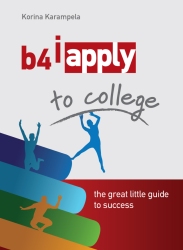Korina Karampela talks to Sir John Whitmore – author of the best-selling book ‘Coaching for Performance’ and Executive Chairman for Performance Consultants– about the value of coaching for professional advancement and how to find the right coach.
- How can coaching help people unlock their potential?
People need to feel confident and safe to express their potential. Coaches need to be friendly, optimistic and encouraging to produce this effect, but they must be honest too in the way they communicate. They need to know that everyone has far more potential than they think they have – including themselves! The coach can ask challenging questions. How can you achieve this? Have you done something like this before? What happened? What might you add next time?
- What is the most common misconception that business leaders have about coaching?
The word coaching was first used in sport where it was, and still is, used by some in a very instructional way. The workplace application of coaching is more modern. Coaches support their clients by asking deeper questions to help them become more aware of their own capacities and that of their staff. Then, their staff need to be trusted to take greater responsibility for their decisions and actions.
Coaching is not about instructing but encouraging people to find their own best way. Coaching is not telling people what to do but trusting them that deeper down they really do know what to do.
- If you were able to make one change to improve the quality of coaching offered, what would it be?
Some of the coaching training programmes on offer are too academic, prescriptive and even bureaucratic and they should be more natural and person focused. People skills are essential for high quality coaches. There is not one way to do anything; we all walk differently; we do it the most comfortable and efficient way for our own physicality and our own psychology at that time.
A good coach is able to understand there are other ways to do things and don’t force people into their way or old ways. A young athlete called Fosberry, changed the way the whole world did the high jump. He did it his way (the Fosberry flop) which was better that all the other so called experts.
- What are the 3 ‘Do’s’ and 3 ‘Don’ts’ executives who want to appoint a coach need to be aware of?
The Do’s are:
- Do think how you want to be coached. Do you like to be challenged or do you prefer a more gentle approach? When you know what coaching style you are looking for, it will be easier to find the right person to work with.
- Do ask your network for recommendations. Find out whether they established an open and honest relationship with their coach. If they did, it is a good sign.
- Do have an interview with two or three potential coaches before making any commitments. Spend 30 minutes with each of them and decide at the end with whom you would like to work with.
The Don’ts are:
- Don’t assume that because one coach was right for a good friend of yours, he or she will also be right for you. Each person is different. Find out whether there is chemistry between you and the coach before you commit.
- Don’t be afraid to stop the relationship if you feel uncomfortable with your coach or there is a breach of confidentiality.
- Don’t underestimate the importance of trust in this relationship.To get the best results, you need to feel at ease with your coach, respect him and be completely honest with him.
The bottom line: A coach can help you achieve your potential as long as you also have a fierce desire to learn and grow. Do your due-diligence to find the right coach for you.
Korina Karampela is the founder of b4iapply, author of 2 books, consultant and speaker. She has worked in senior positions in the pharmaceutical industry for 12 years and has an MBA from MIT Sloan. Her b4iapply blog is recommended by The Guardian for professional development.




